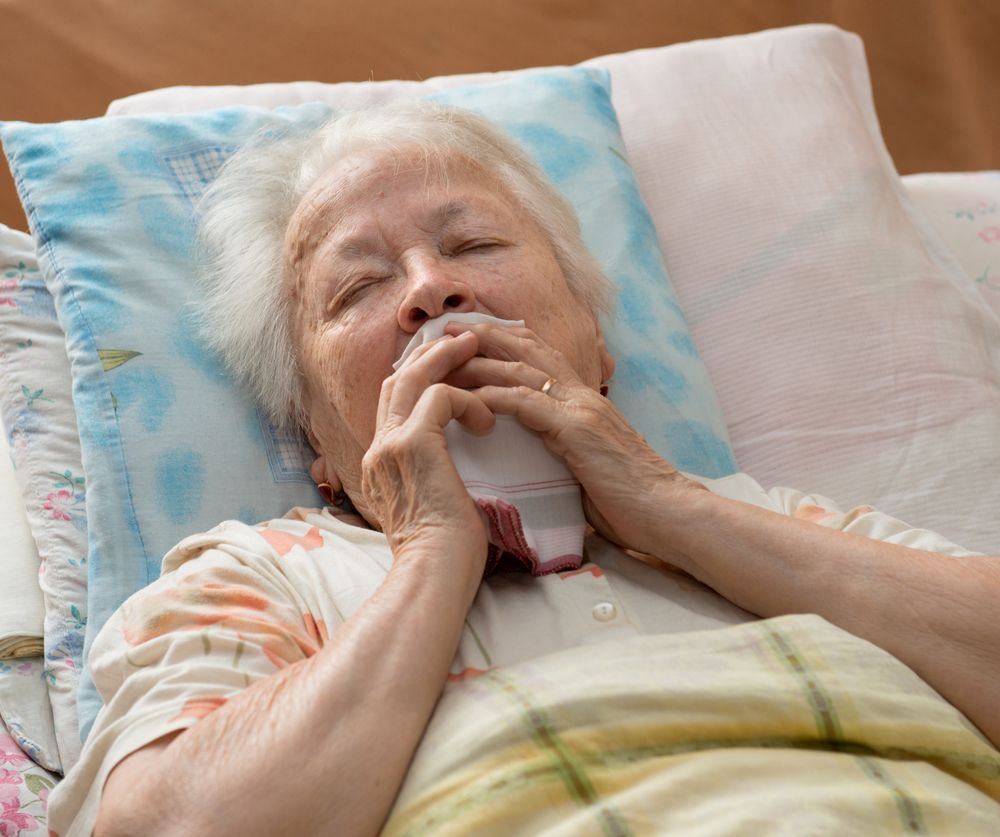- Clinical Technology
- Adult Immunization
- Hepatology
- Pediatric Immunization
- Screening
- Psychiatry
- Allergy
- Women's Health
- Cardiology
- Pediatrics
- Dermatology
- Endocrinology
- Pain Management
- Gastroenterology
- Infectious Disease
- Obesity Medicine
- Rheumatology
- Nephrology
- Neurology
- Pulmonology
Older, Mentally Altered Adults at Greatest Risk for Inappropriate Diagnosis of CAP
More than 1 in 10 older adults were misdiagnosed with community-acquired pneumonia and nearly all were treated with a full course of antibiotics, a new study found.
In a cohort of more than 17 000 older adults hospitalized for treatment of community acquired pneumonia, more than 1 in 10 met the criteria for inappropriate diagnosis and of those, the majority (~88%) received a full course of antibiotics, leading to drug-associated adverse events. Older age, dementia, and altered mental status were key risk factors for inappropriate diagnosis.

Writing in JAMA Internal Medicine, first author Ashwin Gupta, MD, from the Medicine Service at the VA Ann Arbor Healthcare System in Michigan and colleagues point out that some inappropriate diagnosis of CAP is unavoidable given uncertainties at the time of hospital admission. However, for many individuals the diagnosis is not changed through discharge. The harm to patients of an inaccurate diagnosis of CAP may be the result of delayed recognition and treatment of an acute or chronic illness or overlooking entirely a novel diagnosis, the researchers said. Further, unnecessary treatment with antibiotics is a primary cause of antibiotic resistance.
In an effort to quantify the proportion of patients inappropriately treated for CAP and to learn more about the epidemiology and associated outcomes, Gupta and colleagues developed a metric that has since been validated and endorsed by the National Quality Forum (NQF). The metric defines as inappropriate any antibiotic treatment of CAP in patients with fewer than 2 signs or symptoms of CAP or whose radiographic findings were negative for pneumonia.
The prospective cohort study was conducted across 48 hospitals in the Michigan Hospital Medicine Safety Consortium. Trained abstractors retrospectively assessed patients hospitalized and treated for pneumonia between July 1, 2017, and March 31, 2020. Adult patients were eligible for study inclusion if they were admitted to general care with a discharge diagnostic code of pneumonia and received antibiotics on hospital day 1 or 2. Abstractors screened consecutive patients via medical record review 30 days after discharge and collected data from 90 days prior to hospitalization. Researchers also phoned patients 30 days post-discharge to collect additional outcome data. The final cohort numbered 17 290.
Gupta and colleagues assessed risk factors for inappropriate diagnosis and for those deemed inappropriately diagnosed, they documented 30-day composite adverse outcomes, ie, mortality, readmission, emergency department visit, Clostridioides difficile infection, and antibiotic-associated adverse events, which they then stratified by full course (more than 3 days) vs brief (3 days or fewer) antibiotic treatment.
FIDNINGS
Gupta et al reported that 12% of the original cohort of 17 290 individuals met the criteria for inappropriate diagnosis of CAP. Median age of this group was 71.8 years and half were women.
Incidence of misdiagnosis varied across study hospitals, the authors found, reporting that 30 of the 48 inappropriately diagnosed CAP in 10% or more of those admitted for the infection.
The team determined that 87.6% of the misdiagnosed cohort had completed a course of antibiotics.
Patients with inappropriate CAP diagnosis were likely to be older (adjusted OR, per decade, 1.08; 95% CI, 1.05-1.11) and more likely to have altered mental status (AOR, 1.75; 95% CI, 1.39-2.19) or dementia (AOR, 1.79; 95% CI, 1.55-2.08) compared with accurately diagnosed patients.
The researchers found no difference in the 30-day composite adverse outcomes score for full vs brief antibiotic treatment among those misdiagnosed with CAP (25.8% versus 25.6%; aOR, 0.98; 95% CI, 0.79-1.23). A full course of antibiotics taken by patients who did not have CAP, however, was associated with a higher incidence of physician-documented antibiotic-related adverse events vs short-duration treatment (2.1% versus 0.4%; P = .03).
Gupta and colleagues note that the risk of inappropriate diagnosis is “not uniform across populations” with “already highly vulnerable populations at greatest risk,” including for misdiagnosis of CAP. These same vulnerable populations are also most likely to be affected by antibiotic-associated adverse events and resulting morbidity. Thus, balancing harms of underdiagnosis and overdiagnosis of CAP remains essential,” they concluded.
